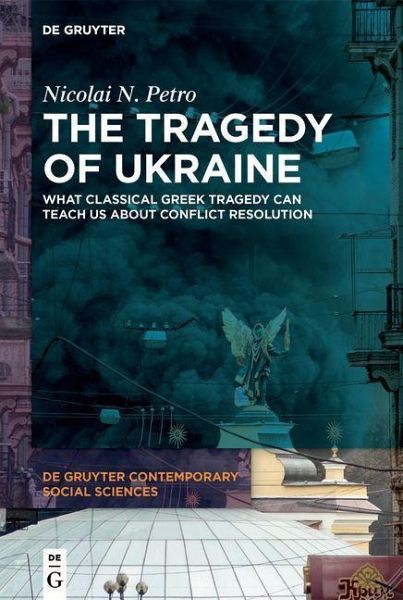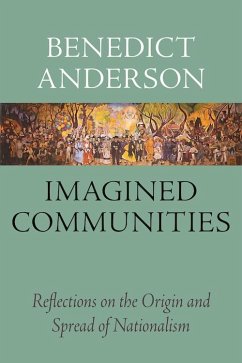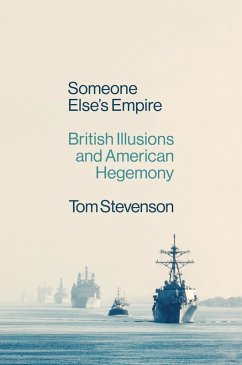
The Tragedy of Ukraine (eBook, ePUB)
What Classical Greek Tragedy Can Teach Us About Conflict Resolution
Versandkostenfrei!
Sofort per Download lieferbar
80,95 €
inkl. MwSt.
Weitere Ausgaben:

PAYBACK Punkte
40 °P sammeln!
The conflict in Ukraine has deep domestic roots. A third of the population, primarily in the East and South, regards its own Russian cultural identity as entirely compatible with a Ukrainian civic identity. The state's reluctance to recognize this ethnos as a legitimate part of the modern Ukrainian nation, has created a tragic cycle that entangles Ukrainian politics.The Tragedy of Ukraine argues that in order to untangle the conflict within the Ukraine, it must be addressed on an emotional, as well as institutional level. It draws on Richard Ned Lebow's 'tragic vision of politics' and on class...
The conflict in Ukraine has deep domestic roots. A third of the population, primarily in the East and South, regards its own Russian cultural identity as entirely compatible with a Ukrainian civic identity. The state's reluctance to recognize this ethnos as a legitimate part of the modern Ukrainian nation, has created a tragic cycle that entangles Ukrainian politics.
The Tragedy of Ukraine argues that in order to untangle the conflict within the Ukraine, it must be addressed on an emotional, as well as institutional level. It draws on Richard Ned Lebow's 'tragic vision of politics' and on classical Greek tragedy to assist in understanding the persistence of this conflict. Classical Greek tragedy once served as a mechanism in Athenian society to heal deep social trauma and create more just institutions. The Tragedy of Ukraine reflects on the ways in which ancient Greek tragedy can help us rethink civic conflict and polarization, as well as model ways of healing deep social divisions.
The Tragedy of Ukraine argues that in order to untangle the conflict within the Ukraine, it must be addressed on an emotional, as well as institutional level. It draws on Richard Ned Lebow's 'tragic vision of politics' and on classical Greek tragedy to assist in understanding the persistence of this conflict. Classical Greek tragedy once served as a mechanism in Athenian society to heal deep social trauma and create more just institutions. The Tragedy of Ukraine reflects on the ways in which ancient Greek tragedy can help us rethink civic conflict and polarization, as well as model ways of healing deep social divisions.
Dieser Download kann aus rechtlichen Gründen nur mit Rechnungsadresse in A, B, BG, CY, CZ, D, DK, EW, E, FIN, F, GR, HR, H, IRL, I, LT, L, LR, M, NL, PL, P, R, S, SLO, SK ausgeliefert werden.













